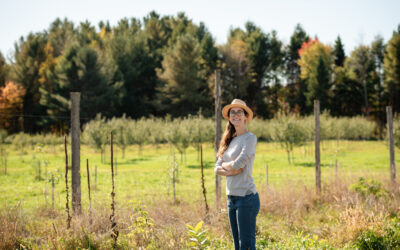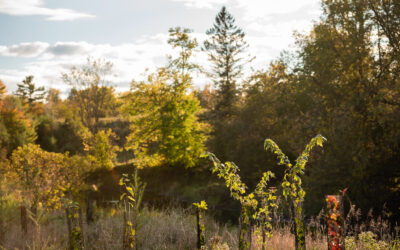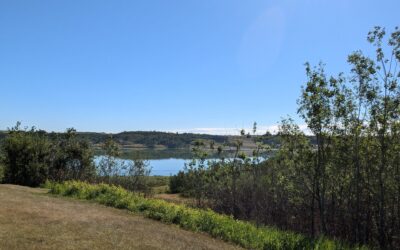Marcus & Sarah Riedner foster happiness, agriculture and ecosystems at their farm, Happiness by the Acre, in Alberta.
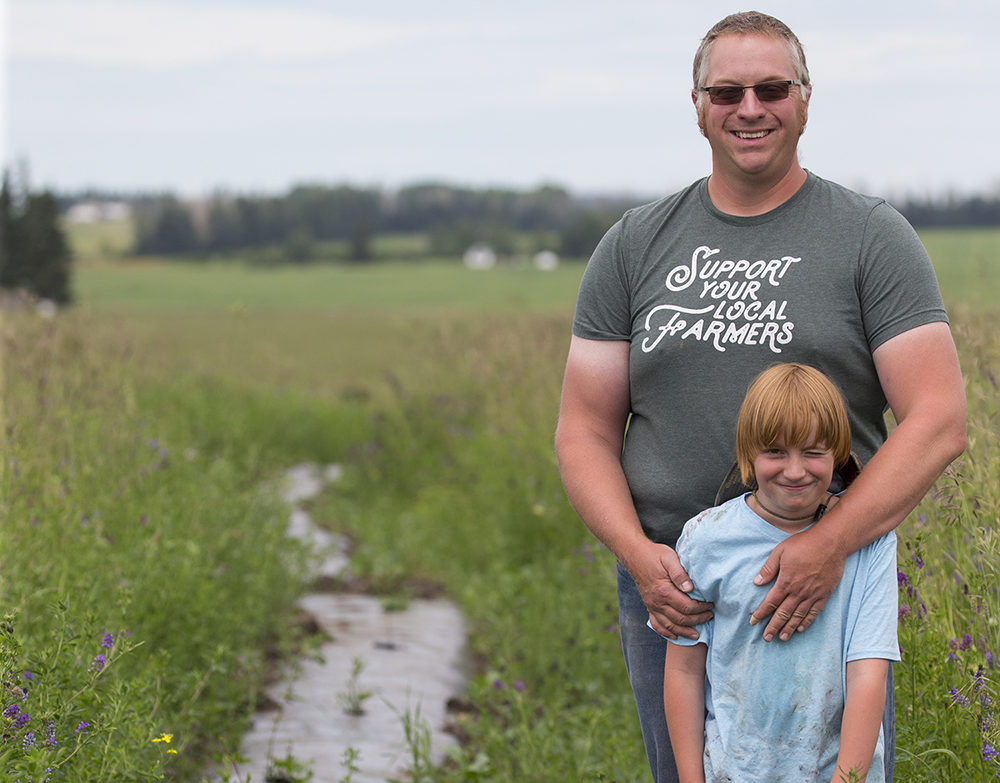
Marcus and Samuel Riedner stand next to a native eco-buffer planted through the ALUS Mountain View County program. Image Credit: Noel West.
At their mixed farming operation, Sarah, Marcus and their family have grazed cattle, poultry and heritage swine for over nine years, providing their community with agri-food staples on 153 acres of land in Mountain View County, Alberta.
Happiness by the Acre is about 6 km northwest of Carstairs, Alberta in the Red Deer River watershed. The Riedners recently joined ALUS Mountain View County (MVC) to plant ecobuffers and shelterbelts in 2020.
“We are seeing improved snow catch with our 2020 planted eco-buffers and shelterbelts already,” said Marcus. “Soil profile has greatly improved, becoming less compacted over time across the farm and in the protected areas, and grazing capacity continues to improve over time.”
The Riedner family’s achievements are not to be understated. Based on soil sampling, the Riedners have found that organic matter across the farm, including in the ALUS protected areas, has improved dramatically. The Riedner’s reported that in some cases organic matter increased from 2% to 10%, with a farm average now at 7%. What this means is that the Riedner’s ALUS projects have helped capture 7,500 metric tons of CO2eq removed from the atmosphere through livestock and farm activities.
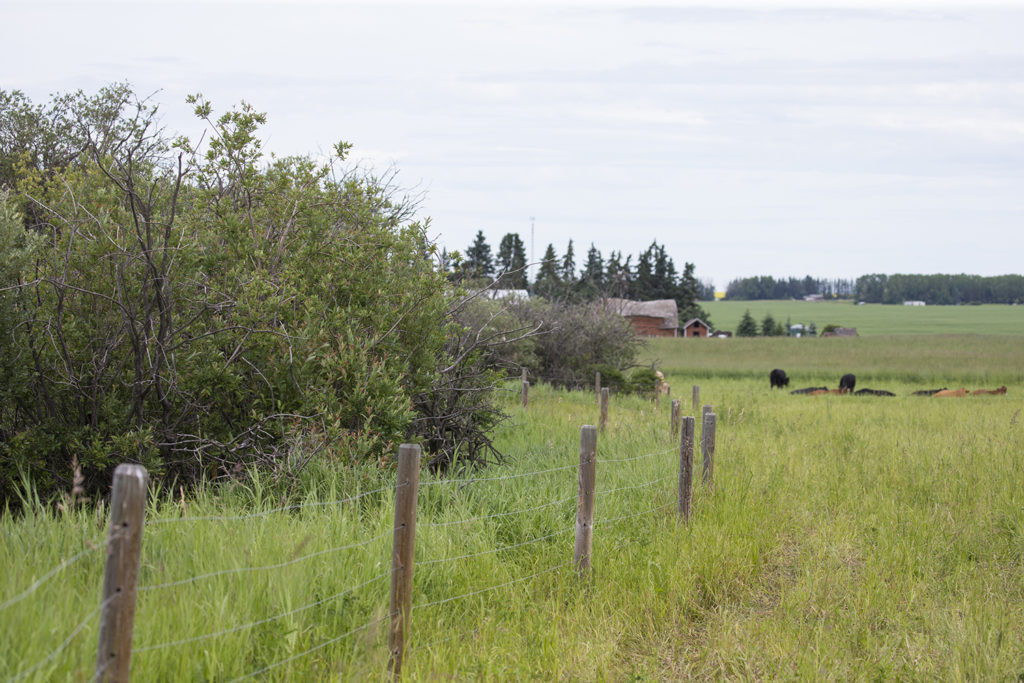
This riparian fence helps protect the Riedner’s wetland tributary to their dugout wetland from intrusion by the cattle, improving water quality, supporting habitat and fostering biodiversity.
This riparian fence helps protect the Riedner’s wetland tributary to their dugout wetland from intrusion by the cattle, improving water quality, supporting habitat and fostering biodiversity.
“Biodiversity at Happiness by the Acre has expanded, particularly with an explosion in the amphibian populations in the protected wetland areas,” said Marcus. “Two species of frog—the boreal chorus and wood frog—have been identified, along with a strong population of tiger salamander.”
Not only that, but bird species continue to grow, including raptor species in hawk and owl families, while other native and naturalized bird flocks have grown year-over-year on the Riedners land.
Though only recent ALUS participants, the Riedner family have participated in Mountain View County’s Riparian and Ecological Enhancement Program since 2016. And they are not planning to slow down their work to improve ecosystem and agricultural outcomes on their land.
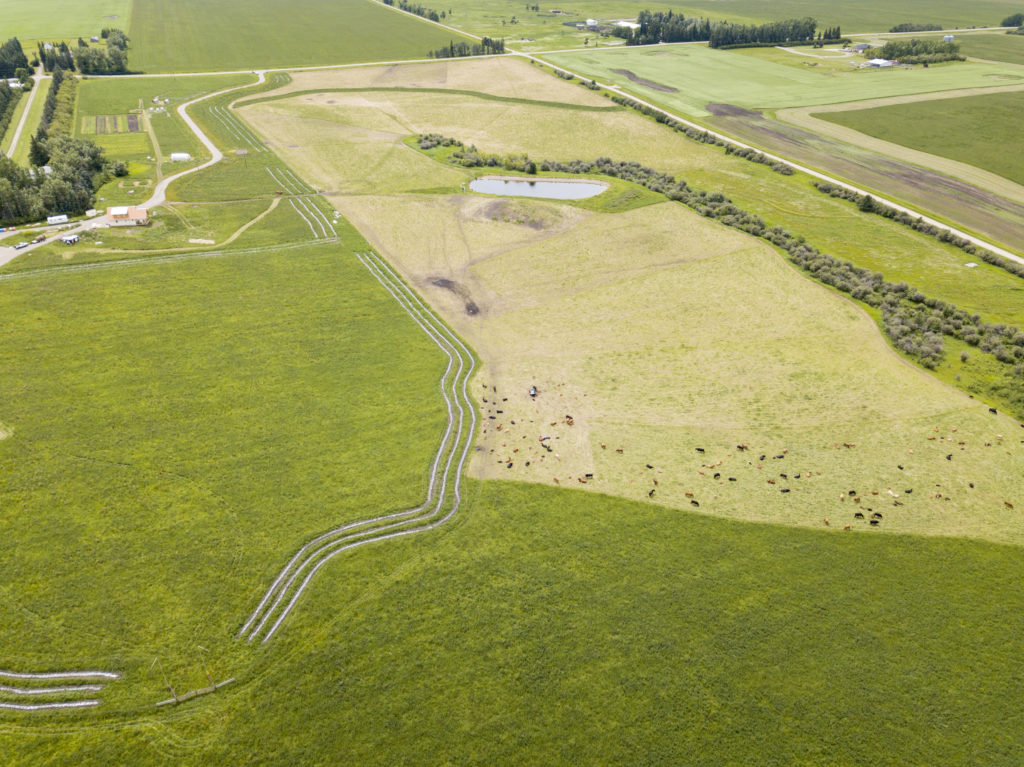
A bird’s eye view of grazing land at Happiness by the Acre, with the protected wetland from the above photo in the top center and buffer strips running in three parallel lines to the left of the grazing land.
“Our plans to improve the health of our pastures and biodiversity continue to develop,” said Marcus. “A second naturalized [wetland] dugout is being planned to improve farm water access and drought mitigation, as well as provide further habitat for aquatic species and improve edge-effect biodiversity.”
The work the Riedner family is doing at Happiness by the Acre is emblematic of what’s being done by producers across Canada; they are combining cutting-edge data and monitoring technologies with sound and practiced ecological management techniques to produce incredible results for their agricultural operations, their community and the environment.

